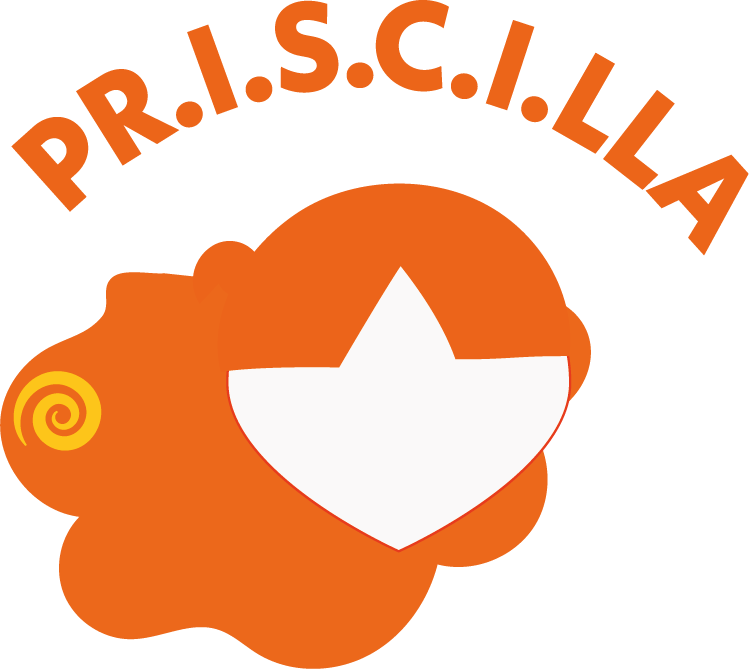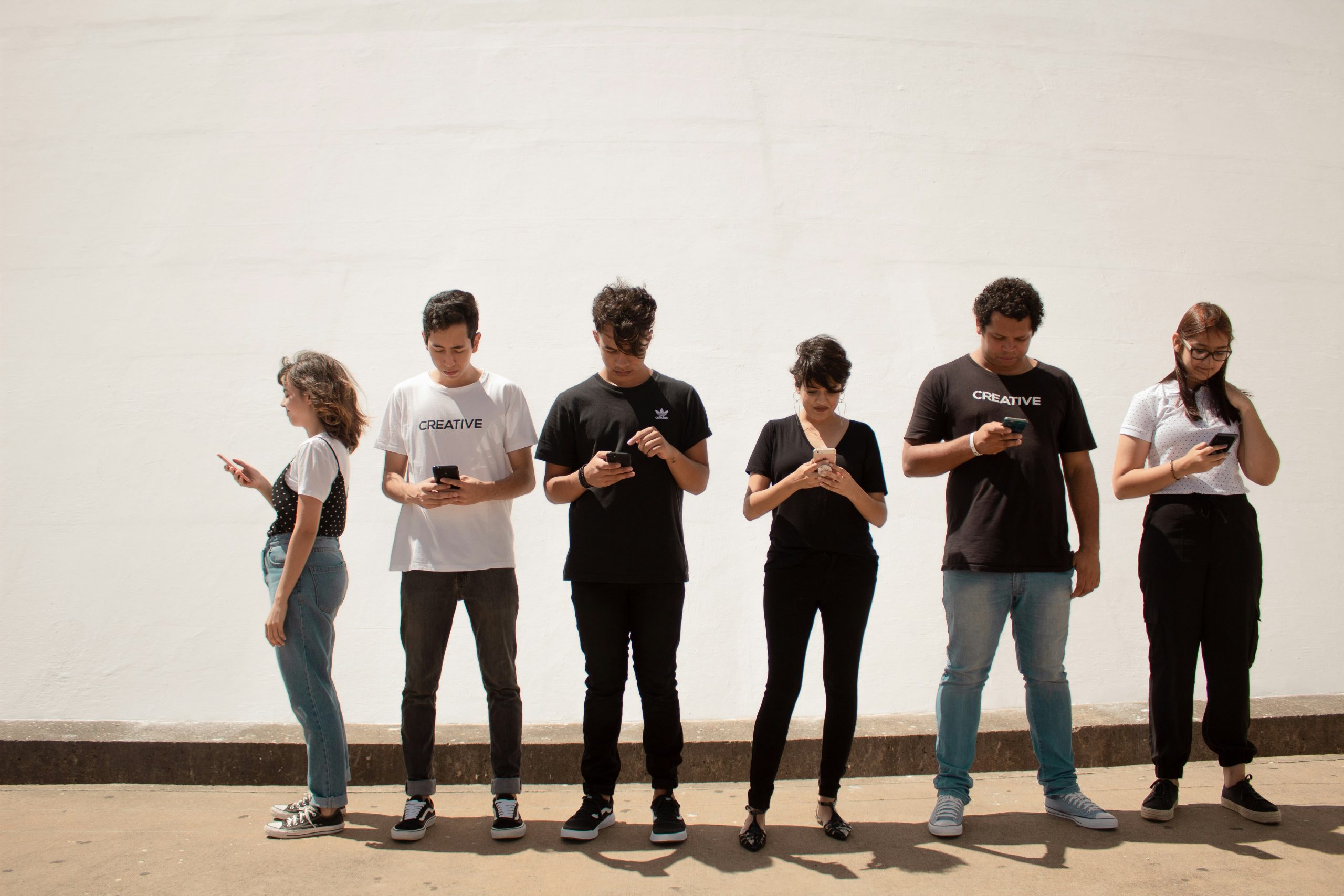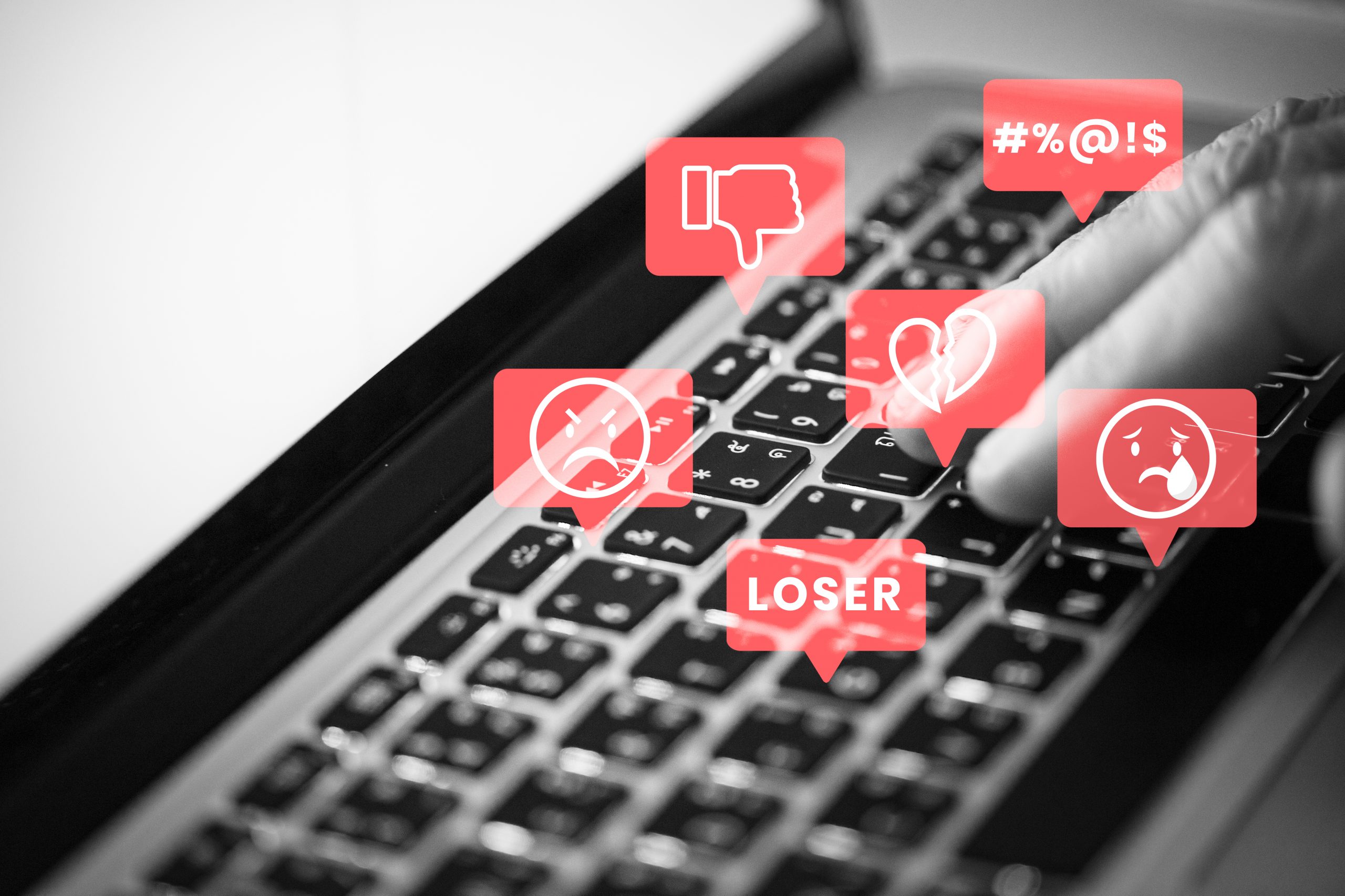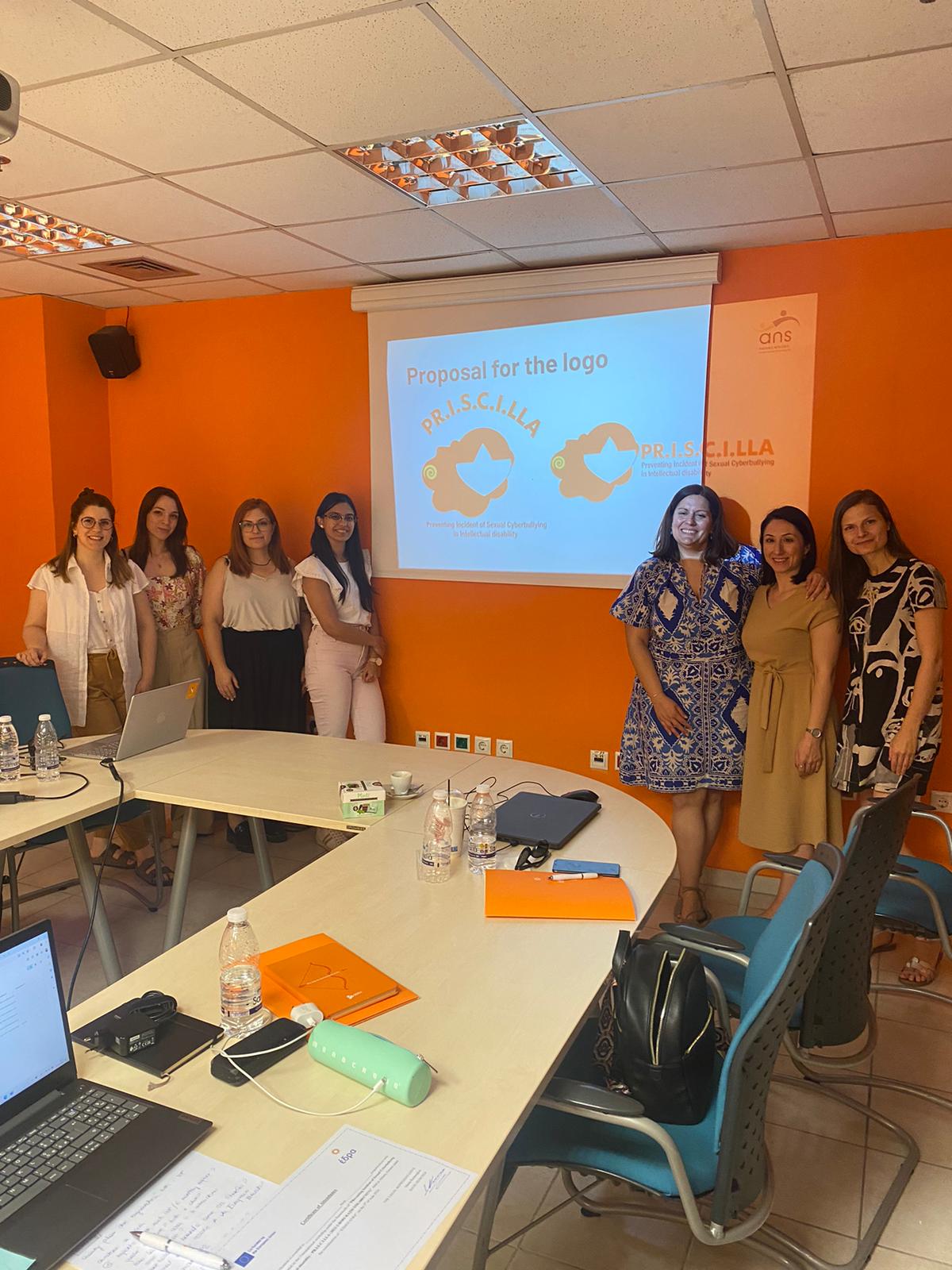Key behavioral and emotional indicators in youths that may signal Cyberbullying “When bullying happens online it can feel as if you’re being attacked everywhere, even inside your own home. It can seem like there’s no escape. The effects can last a long time and affect a person in many ways” (UNICEF, 2025. Cyberbullying: What is it and how to stop it – What teens want to know about cyberbullying). Cyberbullying and its acknowledged negative effects on self-esteem By examining the adverse effects of Cyberbullying on self-esteem, phenomena that is especially prevalent among adolescents, it is essential to explore how these factors interact and shape young people’s personality, character and behavior. Apparently, individuals tend to evaluate their own worth by measuring themselves against others, a process that can produce both positive and negative self-judgments. There is no doubt that Cyberbullying leads its victims to a strongly negative self-perception path. Notably, the digital age has enabled social media to further magnify comparisons to others. This process can profoundly influence how individuals conduct themselves, navigate daily life and engage with the world. When individuals begin to base their sense of worth on others’ approval, acceptance or standards, they risk living according to external expectations rather than their own authentic identity. (Morlu, J.S., 2025. Cyberbullying with Law and the Society; A Psychological perspective of Cyberbullying on Self-esteem). KEY INDICATORS Behavioral and emotional warning signs of Cyberbullying can appear both in situations directly linked to digital activity and in contexts that seem unrelated. When it comes to indicators closely tied to the online world, young people who are experiencing Cyberbullying often display several common behaviors, such as: Secretive behavior: frequently hiding their screen, closing apps abruptly, or guarding their device. Evasive behavior: refusing to talk about their online activity or social media experiences. Emotional outbursts: showing sudden anger, sadness, frustration or anxiety after using a device. Unexplained changes in social media presence: unexpectedly deleting social media accounts or creating new ones. Heightened sensitivity around device rules: becoming upset or reactive when their device use is questioned or limited. Changes in how the youths use their phone, tablet, or laptop can also be a red flag for Cyberbullying. For example, sudden overuse may signal that they feel pressured to constantly monitor social media or keep up with online conversations. On the other hand, a noticeable drop-in screen time might indicate fear or anxiety about what they’ll encounter online, e.g., messages, comments, or posts they’d rather avoid. Paying attention to these shifts can offer early clues that something is wrong in their digital world (UNICEF, 2025. How to talk to your child about Cyberbullying – Expert advice for spotting the signs and navigating conversations with care). But the impact of Cyberbullying doesn’t stop at the screen. A study titled “From Words to Wounds: Cyberbullying and Its Influence on Mental Health Across the Lifespan” looked at 883 individuals who had been victims of online harassment, revealing just how deeply these digital attacks can affect real world well-being. When questioned about Cyberbullying incidents, victims described experiencing: shame and humiliation, causing loss of trust in people; tendency to withdraw from friends and family, with consequent social isolation; a sense of missing out which disrupts social connections; loss of interest in hobbies once enjoyed; irritability, anger and frustration; feelings of anxiety and low self-esteem; depressive symptoms, mentioning persistent negative thoughts; self-critical inner dialogue; a sense of always being judged and increased vulnerability. Some even interpreted online bullying as common or “normal”, particularly when they struggled with boundaries and rules. Yet, this perception reveals the profound emotional impact of Cyberbullying on their overall well-being and relationships. Finally, Cyberbullying can also manifest in physical ways, such as disturbances in sleep and eating patterns, showing how deeply and badly this type of virtual bullying can affect the quality of life in all its complexity (von Humboldt, Low, Leal, 2025). The importance of “early digital education” Cyberbullying isn’t just a one-off incident — it’s a widespread, systemic problem that’s shaping the mental health of entire generations. Today’s children and adolescents need more than just supervision online; they need genuine understanding, emotional support and access to safer, healthier digital spaces. At the same time, many young people require specialized psychological support to help them process what they’ve experienced, validate their emotions and rebuild their self-esteem. And beyond individual care, we need strong, consistent public policies that protect their right to feel safe, both behind a screen and in the real world. Finally, the Cyberbullying issue emphasizes the importance of an “early digital education” that empowers the youths to navigate safely and with confidence the online world (Save the Children Romania, Internet Safety Day 2025. The impact of Cyberbullying on children’s emotional wellbeing). Photo by Creative Christians on Unsplash
PR.I.S.C.I.L.LA: The Educational programme for young people with intellectual disabilities on the risks of the internet and sexual cyberbullying
The PR.I.S.C.I.L.LA project was developed to prevent and protect against the risks of sexual cyberbullying, a growing threat linked to the widespread use of social media. The initiative focuses on young people aged 18 to 25with intellectual disabilities, responding to the need to guide and support them in using social networks safely and responsibly. As part of this effort, a dedicated educational programme has been created, featuring modules on key topics related to online safety and digital wellbeing. Designed to be implemented in the various environments attended by young people with intellectual disabilities, the programme helps participants make the most of social media as a space for positive interaction, personal growth, and self-expression. Its goal is to empower young people strengthening their sense of identity, self- awareness, and self-esteem, while at the same time reducing the risks of sexual harassment and cyberbullying. Structure of the educational programme The educational principles at the heart of the programme include decision-making skills, self- determination, a sense of control, and the promotion of independence. The programme is based on a learning by doing approach, using engaging and practical methods that foster active participation and understanding. These include physical activities, visual supports, role-playing, practical exercises, and storytelling. There are five modules: Relationship: Feeling good with Myself and Others: helps young people to better understand emotions and how they are expressed. Explains the differences between friendship and love, the importance of loving oneself and making independent choices. It also discusses online and offline relationships, with examples of healthy behaviours and signs of toxicrelationships; Introduction to social media: teaches how to recognise the most common platforms, understand whypeople use them and how they communicate It presents useful behaviours for feeling safe, such as asking for help, using the tools available and knowing when something is wrong. It also reflects on how social media can be beneficial, but also create difficulties in relationships; Recognising dangers on social media: recognising the main online dangers, such as cyberbullying, grooming and data theft. Explains what these risks are and how to protect yourself; Staying safe when using social media: focuses on online privacy and why it is important to protect Itoffers practical advice on keeping your information safe and using social media in a safer and more responsible way. The aim is to promote digital independence and wellbeing; Finding solutions and asking for help: focuses on teaching young people what to do if they experience cyberbullying, with a particular focus on sexual harassment. The first part offers a practical step-by-step guide on what to do. The second part explains the importance of building a network of trusted people, such as family members, friends and professionals,who can help and protect them. These modules are expected to help young people with intellectual disabilities to: understand that social media can be useful but also harmful; recognise potentially risky situations when using social media; learn strategies forsafer media use; understand when and who to turn to for reporting and support. The educational program is free and available in English, Italian, Macedonian, Greek, and Romanian. You can download it from the project website, in the “Results” section, at this link: https://priscillaproject.eu/results-2 Piloting of the educational programme After the curriculum for the training programme for young people was validated by five National Boards and oneEuropean Board, the educational programme was piloted across the partner countries of the Europeanconsortium. The aim was to test its practical implementation, ensure its adaptability to different national contexts,and collect valuable feedback from the pilot phase. In total, the testing phase engaged more than 82 young people with disabilities across five European countries. The results confirmed that, with targeted adaptations, young people with intellectual disabilities cansuccessfully address complex topics such as online safety and cyberbullying. Participants demonstrated increased confidence, understanding, and awareness. The use of clear language, familiar settings, andhands-on activities proved to be key factors in supporting their learning process. The piloting carried out in the different partner countries highlighted several key achievements: Awareness of risks: significantly increased; Threat detection: stable and solid competences; Privacy and communication: concepts well understood; Security paradox: greater awareness leading to a lower perceived sense of safety; Problem-solving: high levels of confidence; Cyberbullying: more participants acknowledged having experienced The training content also proved to be relevant for adults as well as for early teens, confirming the project’s potentialfor large-scale application. Its adaptability enabled active participation and stronger practical application ineveryday life. Moreover, the sessions contributed to a better understanding of interpersonal relationships, appropriate and inappropriate online behaviours, online risks, self-respect and respect for others, the use ofpolite language, and ways of seeking help. Creating a safe and non-judgmental environment encouraged open discussion on sensitive issues and supported participants in managing overly affectionate behaviours towards strangers. The PR.I.S.C.I.L.LA project therefore proves that it is possible, through inclusive and interactive educational programmes, to offer young people with intellectual disabilities concrete tools to use social media in a safer and more informed way. The trial highlighted not only an increase in skills and confidence, but also the importance of combining knowledge with ongoing emotional support. With its innovative and adaptable approach, the project lays the foundations for large-scale dissemination, with the aim of creating safer, moreinclusive and respectful digital communities. This press release is available in: English Italian Greek Macedonian Spanish Romanian
The central role of carers in the digital age
In an era in which social media plays a central role in maintaining interpersonal relationships, it is also necessary to pay attention to the risks that come with it, and in this regard, the help of formal and informal carers is undoubtedly essential. In fact, caregivers, being those who interact most with young people with intellectual disabilities on a daily basis, need tools to support them and to become points of reference in the event of unfortunate incidents of sexual cyberbullying. It has been found that a person who is socially competent in their professional role is more likely to contribute to maximising not only their own quality of life, but also that of the people with intellectual disabilities they deal with, and this can then be reflected in the latter’s social world, which today is undoubtedly expressed through social media (Bandeira, 2014; Lima, 2014; Pinto&Barham, 2014). This is why it is important to work on the skills of formal and informal carers. But how can a carer act in practice when faced with a risky situation? First of all, we can say that, in general, it is possible to intervene through education on the safe use of the internet, continuous monitoring and dialogue, immediate action in the event of specific incidents, seeking professional support and promoting self-esteem, as well as implementing a social network for young people, in order to minimise risks and enhance resources (Ordine degli Psicologi Lombardia, 2021). In addition, caregivers, whether formal or informal, should work on their self-control to avoid reacting in a dysfunctional way (with excessive anger, distress, hostility, etc.) and maintain the clarity necessary to identify the triggers of the situation and express a certain calm to the young person with intellectual disabilities (Del Prette & Del Prette, 2008, 2013). If the situation of online sexual harassment triggers a conflict between the adult and the young person, then it may be helpful to take some time out, withdraw from the conflict and return to the problem after reflecting on what to do (Ibidem). Let’s look specifically at useful solutions that caregivers can implement to prevent and deal with the risks of social media: 1) Promote education and awareness (Megan, Moreno, 2013) – Teaching responsible use of technology, explaining to young people how digital tools work, what information not to share and the risks that arise from using the internet – Improving communication, making young people feel comfortable in an atmosphere of trust, where they can talk about negative experiences without being judged – Educating them on the signs of sexual cyberbullying, making it clear that it is not their fault, that they do not have to endure it and that action can be taken 2) Actively taking action and intervening (Polanin et. al, 2022) – Monitoring online activity, always discussing it with the young person and without doing so secretly; making them understand that this is done to help them and not to control them – Intervening promptly by blocking, documenting incidents and making appropriate reports to the relevant authorities, such as social media platforms or the school – Offering emotional support and reassuring the young person, helping them to work through what has happened together 3) Supporting the well-being of the young person and the carer (Cohen, Almagor, 2018) – Strengthening self-esteem and social skills, not by replacing the young person, but by helping to promote a sense of self-efficacy, standing by their side – Creating a support network with the school, social services and other local spaces dedicated to young people with intellectual disabilities – Requesting and accepting help for the carer themselves; their emotional wellbeing is essential in order to deal with these situations effectively These resources have also been made available in the PR.I.S.C.I.L.LA project, which aims to support both young people with intellectual disabilities and those who care for them. The project offers an active learning programme to help young people use social media and the internet safely and responsibly, and a blended learning course for youth workers and carers, providing them with the skills to support digital inclusion while minimising risks such as cyberbullying and online harassment. Photo by from Kindel Media from pexels
From Likes to Limits: Helping Young People Build Healthy Digital Connections
As the internet becomes a central part of young people’s lives, it’s essential that families and caregivers feel confident supporting conversations about online relationships and emotions. The online experience of youth with Intellectual disabilities For young people with intellectual disabilities (ID), navigating the online realm safely is a particularly challenging but worthy endeavour. A Swedish study shows that youth with ID are more than twice as likely to be bullied on social media than their non-disabled peers (23% vs. 11%). The risks are more significant for: -Youth with limited social judgment, struggling to identify risky behaviour or social cues (Buijs, 2016). -Young women with ID, especially regarding online sexuality. While non-disabled girls often possess more sexual knowledge than boys, the reverse is true for youth with ID (Jahoda & Pownall, 2014). Compounding this vulnerability is the perception that girls are more contact-seeking, leading to riskier behaviours online (Löfgren-Mårtenson, Sorbring & Molin, 2015). These disheartening statistics emphasise the need for proactive support and projects like PR.I.S.C.I.LLA that fosters the way to a safer and more inclusive digital experience. The path to digital independence: finding the right approach Today, using the internet and social media independently is a core life skill. This includes knowing how to create a profile, choose who to connect and share content with, and manage privacy settings. Acquiring these skills builds both self-confidence and emotional well-being for youth with ID as a source of a much-needed sense of empowerment. Welcome trial and error. Supporting digital autonomy doesn’t mean leaving young people on their own, but walking beside them as they explore and learn. Families and educators should strive to create an environment promoting decision-making and resilience by promoting trial and error as part of the learning process. Guidance, not surveillance. It’s important to be present, to listen, and to step in when needed without judgment or fear. When trust is nurtured, young people are more likely to ask questions, disclose concerns, and seek help when something doesn’t feel right. Relationships and boundaries Offering clear, supportive guidance to the different types of relationships youth may encounter online is a must. Explaining friendships vs. romantic relationships. Clarifying this distinction helps set realistic expectations and recognise healthy versus problematic behaviours. Affection and the different degrees of emotional closeness can also be confusing for youth with ID. In this regard, it’s helpful to explain that it’s okay to show kindness through messages, emojis, or compliments,but that some forms of affection, like expressing love or sending personal photos, should only be shared with trusted individuals, and with care. Teaching boundaries is also essential. Talking about personal space online, like not sharing passwords or accepting friend requests from strangers, is useful. Moreover, emphasising consent and the right to say no is a good way to explain that it’s never okay for someone to pressure them to share or do something uncomfortable. Leading meaningful conversations Exploring their digital world. It’s helpful to ask which apps they use, who they talk to, and how they feel during those interactions, with simple language and visuals. Support emotional literacy by helping them name feelings, like feeling excited when receiving a message, or hurt when ignored. Use real-life examples to explain boundaries, and role-play scenarios to help them practice responses—what to do if someone says or asks something inappropriate. Reassure them that they can always seek help. Connecting with resources and support Parents and caregivers don’t have to navigate this journey alone. Many helpful resources are available to build confidence and knowledge, including educational tools, videos, and other media that can spark reflection. One such resource is the PR.I.S.C.I.L.LA project, which aims to support both young people with intellectual disabilities and those who care for them. The project offers an active learning programme to help young people use social media and the internet safely and responsibly, and a blended learning course for youth workers and caregivers, equipping them with the skills to support digital inclusion while minimising risks like cyberbullying and online harassment. Joining online communities or local support groups for parents and carers can also offer encouragement, shared strategies, and emotional support. When needed, professionals like teachers, counsellors, or others can offer tailored guidance. These tools and networks strengthen the ability of supporters of young people with intellectual disabilities to guide them toward safer, more confident digital lives. References: Buijs, P. C. (2016). Psychiatric patients and the Internet: Risks and recommendations. Tijdschrift Voor Psychiatrie, 58(1), 39–46. Jahoda, A., & Pownall, J. D. (2014). Sexual understanding, sources of information and social networks: The reports of young people with intellectual disabilities and their non-disabled peers. Journal of Intellectual Disability Research, 58(5), 430–441. https://doi.org/10.1111/jir.12040 Löfgren-Mårtenson, L., Sorbring, E., & Molin, M. (2015). “T@ngled up in Blue”: Views of parents and professionals on Internet use for sexual purposes among young people with intellectual disabilities. Sexuality and Disability, 33, 533–544. https://doi.org/10.1007/s11195-015-9415-7 Molin, M., Molin, B., & Sorbring, E. (2023). Adolescents with Intellectual Disabilities and Online Risk Exposure: A Comparison with Peers without Intellectual Disabilities. Scandinavian Journal of Disability Research, 25(1), 245–257. https://doi.org/10.16993/sjdr.549
Social Media as a tool for inclusion and empowerment of young people with intellectual disabilities
In an increasingly digital world, social media platforms have become essential tools for communication, self-expression, and social participation. While much attention is given to the potential risks of these platforms, it is equally important to highlight the numerous opportunities they offer—particularly for young people with intellectual disabilities. Far from being just a space for entertainment, social media can serve as powerful channels for empowerment, connection, and genuine inclusion. When access is safe, supported, and adapted to individual needs, the benefits are wide-ranging and deeply impactful. Building meaningful social relationships For many people with intellectual disabilities, establishing and maintaining social relationships can be challenging due to communication, mobility, or social barriers. Social media removes many of these limitations by offering an accessible environment to connect with friends, family, activity peers, or new individuals with shared interests.These platforms help maintain bonds, share meaningful experiences, and, most importantly, foster a sense of belonging within a support network, which has a positive impact on mental and emotional well-being.Recent studies, such as the one presented at the International Congress on Communication and Digital Inclusion (Macho de Cos, I. (2023), emphasize that social media fosters sociability and offers a flexible space where individuals can interact at their own pace. A Space for self-expression and identity building The right to self-expression is universal, and social media offers a wide variety of channels for it: from images and videos to text posts, audio, comments, and reactions. For young people with intellectual disabilities, these platforms allow them to share emotions, opinions, interests, and ideas—contributing to the construction of a strong and positive personal identity.The ability to show who they are, what they like, and what they think has a direct impact on self-esteem. Additionally, this visibility helps others see them beyond stereotypes, promoting a more inclusive and just perception of disability. Developing digital autonomy Another key benefit of social media is the opportunity to acquire and develop independent digital skills. From creating a profile, engaging with content, or managing privacy settings, to understanding the difference between safe and unsafe interactions online—these are all essential steps toward greater autonomy.Progressively acquiring these competencies builds self-confidence and encourages independent decision-making. As emphasized by Fundación Amanecer, autonomy is closely linked to personal well-being, and the digital environment can be a great place to foster it.Naturally, this process must be accompanied by proper training and support from professionals, families, and educational environments. Active social participation and the right to be heard Social media also provides a space for civic engagement and rights advocacy. Through these platforms, people with intellectual disabilities can share their views, speak out against injustice, and take part in movements striving for a more equitable society.There are many examples of self-advocates and collectives using social media to highlight their struggles, achievements, and proposals. This type of participation holds educational and political value, contributing to societal change and more inclusive public discourse.As emphasized in the Spanish Journal of Disability, active engagement in social media helps improve self-esteem, a sense of belonging, and perceived personal effectiveness—three key elements in the identity formation of any young person. See also García-Pérez Calabuig, M., et al. (2024). Access to educational, cultural, and recreational content The internet and social networks are not only spaces for interaction but also provide extensive access to education, culture, and accessible entertainment. From video tutorials on cooking, sports, or crafts to accounts that share adapted news, rights information, and inclusive activities—these platforms can support personal development in numerous ways.Such access enables individuals to explore their interests and learn at their own pace, expanding their horizons and future opportunities.Platforms like YouTube or TikTok, when used with guidance, offer real opportunities to develop skills ranging from basic communication to more advanced competencies like audiovisual creativity or digital entrepreneurship.See examples in Down Madrid. (2023) and Mañas-Viniegra et al. (2023). Conclusion Social media can be powerful allies in the journey toward real inclusion for young people with intellectual disabilities. It is not only about allowing access to technology, but about ensuring safe, meaningful, and empowering participation in digital environments.This requires proper support, education, and adaptation, but also a shift in perspective: to recognize and value the capabilities that emerge when each individual is trusted and given the tools to thrive. Because everyone deserves the right to express themselves, connect, learn, and participate. And social media, when used responsibly and respectfully, can help make this a reality. #PositiveIdentity #SocialMediaSafety #IDYouthSupport Resources: – Macho de Cos, I. (2023). Uso y participación de las personas con discapacidad intelectual en las redes sociales y entornos virtuales. [Use and participation of people with intellectual disabilities in social media and digital environments]. International Congress on Communication and Digital Inclusion (CICID). [https://cicid.es](https://cicid.es/ponencia/uso-y-participacion-de-las-personas-con-discapacidad-intelectual-a-las-redes-sociales-y-entornos-virtuales) – García-Pérez Calabuig, M., et al. (2024). Empowerment and virtual stigma in social media: A socio-educational proposal for people with disabilities and mental disorders. European Public & Social Innovation Review. [https://epsir.net](https://epsir.net/index.php/epsir/article/view/1394) – Down Madrid. (2023). Training people with intellectual disabilities on digital safety and responsible social media use. [https://downmadrid.org](https://downmadrid.org/dia-redes-sociales-discapacidad-intelectual) – Mañas-Viniegra, L., et al. (2023). New technologies and the digital inclusion of people with disabilities: A challenge for communication, education and employability. ICONO14 Journal. [https://icono14.net](https://icono14.net/files/articles/2047-ES) – Fundación Amanecer. The benefits of autonomy in people with intellectual and developmental disabilities. [https://fundacionamanecer.org.es] (https://fundacionamanecer.org.es)
Staying safe and smart on Social Media
In today’s digital world, social media is an essential part of how we connect, learn, and share our thoughts with others. Platforms like Instagram, Facebook, and TikTok allow us to stay in touch with friends, discover new interests, and express ourselves creatively. However, with great connectivity comes great responsibility, especially when it comes to staying safe online. What is Social Media? Social media platforms are spaces on the internet where we can share photos, videos, and messages while keeping in touch with people worldwide. They help us communicate, learn new things, and connect with individuals who has the same interest as us. But while these spaces can be fun and engaging, they also come with risks that we need to be aware of. How to Stay Safe Online To enjoy social media responsibly, here are some key safety tips: Control Your Privacy Settings: Always check who can see what you share. Adjust your settings to ensure only trusted friends or family members can access your posts. Think Before You Share: Avoid posting personal information like your full name, address, phone number, or school name. Once something is online, it can be hard to remove. Be Mindful of Online Interactions: Not everyone online has good intentions. Be cautious when talking to strangers, and never meet someone in person without parental consent. Handle Negative Comments Wisely: Social media is a place to express yourself, but it’s also important to ignore or report harmful comments instead of engaging with negativity. Follow Reliable Sources: The internet is full of misinformation. Always verify facts before sharing news or believing what you see online. A Safe Space for Expression: Social media is a fantastic tool for creativity, learning, and connection—when used wisely. By following these safety tips, we can make sure our digital experience remains positive and secure. How about you? How do you use social media? Share your thoughts in the comments and join the conversation on responsible internet use! Resources UNICEF (2022). The State of the World’s Children: Digital Safety for Young People. Retrieved from https://www.unicef.org European Commission (2023). Safer Internet for Kids: A Guide for Parents and Educators. Available at https://ec.europa.eu/digital-strategy/safer-internet National Cyber Security Centre (2022). Staying Safe Online: A Guide for Individuals with Disabilities.Retrieved from https://www.ncsc.gov.uk PRISCILLA Project (2024). Educational Resources on Digital Inclusion and Internet Safety. Available at https://www.priscillaproject.eu Photo from Pexels by cottonbro
Cyberbullying and intellectual disabilities: Breaking the cycle of vulnerability
Bullying is a serious issue that has been studied extensively, particularly in European schools since the 1970s, thanks to the pioneering work of Dan Olweus. Initially, bullying was often seen as a normal part of growing up, but over time our understanding has changed. Today we recognise bullying as a harmful behaviour that can have long-lasting consequences. It is characterised by repeated aggressive actions, a power imbalance and emotional distress for the victim. An increasingly worrying form of bullying is cyberbullying, especially when it involves sexual harassment. As more and more young people interact online, bullying has moved beyond the classroom and into the digital world. Cyberbullying can include spreading rumours, sending hurtful messages or sharing private images without consent. A particularly harmful aspect is sexual cyberbullying, where explicit or inappropriate content is directed at the victim. This type of harassment can have serious emotional and psychological effects, making it a critical issue that demands our attention. Bullying and cyberbullying are even more pressing issues for young people with intellectual disabilities (ID). These individuals are often more likely to be bullied than their peers without disabilities. This vulnerability is often due to challenges such as limited social skills, less awareness of potential dangers and greater dependence on others for support. In some cases, people with intellectual disabilities may not fully understand the seriousness of cyberbullying, especially when it involves sexual content or exploitation. Research by Jenaro et al (2018) highlights that cyberbullying among adults with intellectual disabilities is a growing concern. They found that adults with ID often struggle to recognise abusive behaviour online and may not report incidents of cyberbullying due to fear, stigma or a lack of understanding about how to seek help. In addition, their findings highlight the role of social isolation and limited digital literacy as factors that increase the risk of victimisation. When cyberbullying involves sexual harassment, the consequences can be severe, including emotional trauma, social withdrawal and a decrease in overall well-being. The PR.I.S.C.I.L.LA project: Preventing Incident of Sexual Cyberbullying in Intellectual disability The PR.I.S.C.I.L.LA project aims to create an educational programme to help young people with intellectual disabilities navigate social media and the internet safely and responsibly. The programme focuses on ‘positive risk-taking’, encouraging participants to expand their social networks and build confidence, while minimising the risks of cyberbullying and online sexual harassment. The project has two main aims: First, it will provide an active learning based training programme for young people with intellectual disabilities. Second, it will provide a blended learning course for youth workers to help them support their clients to use digital tools safely. This approach will equip both young people and the professionals who work with them with the skills they need to navigate the digital world safely and protect themselves from online harm. Resources: Jenaro, Cristina; Flores, Noelia; Vega, Vanessa; Cruz, Maribel; Pérez, Ma. Carmen; Torres, Víctor A. . (2018). Cyberbullying among adults with intellectual disabilities: Some preliminary data. Research in Developmental Disabilities, 72(), 265–274. doi:10.1016/j.ridd.2017.12.006 Image from Freepik
Digital empowerment and challenges: finding the right balance
Life in today’s world is increasingly characterised by the constant presence and use of the Internet and social media. In a very short period of time, social communication patterns among young people have changed and the internet has given rise to innovative ways of making connections and building relationships (Löfgren-Mårtenson, 2008). However, for people with intellectual disabilities, the digital space can be an empowering tool or a source of challenges. Unlocking opportunities: Online social networking sites offer incredible opportunities for people with intellectual disabilities. Social media and the internet allow individuals to communicate with a wider audience, which can reduce feelings of loneliness and social barriers (Chadwick et al, 2013). Online environments offer the opportunity to stay in touch with friends, make new friends and find a community of people who share the same interests, encouraging the exchange of ideas and opinions, thereby enhancing self-esteem and interpersonal skills (Holmes et al, 2014). In addition, online platforms provide opportunities for social and romantic interactions, fostering a sense of independence and privacy (Löfgren-Mårtenson, 2008). Navigating the challenges: The digital world can also pose significant challenges and risks. Online conversations, because they take place without face-to-face confrontation, can expose people to potentially dangerous situations (Dunbar 2012). This risk is particularly high for the most vulnerable, who are more exposed to crimes such as financial fraud, harassment and sexual cyberbullying (Borgström et al 2019). Numerous testimonies from people with intellectual disabilities have reported negative experiences of using social media, including receiving unwanted messages with offensive comments or requests of an explicitly sexual nature (Holmes et al, 2014). The role of caregivers: Parents and caregivers have been identified as key supporters of technology use by people with intellectual disabilities, although this often involves forms of control and restrictions (Löfgren-Mårtenson, 2008; Palmer et al. 2012). Specifically, these strict boundaries occur because caregivers consider these people to be particularly vulnerable and try to protect them from online risks by restricting their access to the internet (Molin et al., 2015). However, these behaviours can limit the development of self-determination and independence of people with intellectual disabilities, leading to a disconnection from the vast opportunities offered by the Internet (Löfgren-Mårtenson, 2004). The importance of education and awareness raising: In order to promote the safe and independent use of the internet, it is essential to educate and raise awareness on the issue, teaching people with intellectual disabilities the importance of the digital space, how to use it correctly and how to deal with potential problems that may arise (Chiner et al., 2017). It is also important to involve carers and educate them to adopt a shared decision-making approach and negotiation processes to ensure safe use of the internet, while respecting the privacy and autonomy of people with intellectual disabilities (Seale, 2014). While the online world and social networks are a source of potential risks, they also offer many opportunities for personal and social growth for people with intellectual disabilities (Holmes et al, 2014). Only a deeper understanding of these aspects will make it possible to promote an inclusive, responsible and safe use of the internet for these people (Chiner et al, 2017). References Borgström, Å., Daneback, K., & Molin, M. (2019). Young people with intellectual disabilities and social media: A literature review and thematic analysis. Scandinavian Journal of Disability Research, 21(1), 129-140. Chadwick, D., Wesson, C., & Fullwood, C. (2013). Internet access by people with intellectual disabilities: Inequalities and opportunities. Future internet, 5(3), 376-397. Chiner, E., Gómez‐Puerta, M., & Cardona‐Moltó, M. C. (2017). Internet use, risks and online behaviour: The view of internet users with intellectual disabilities and their caregivers. British Journal of Learning Disabilities, 45(3), 190-197. Dunbar R. (2012) Social networks. New Scient, 214: 1–9. Holmes, K. M., & O’Loughlin, N. (2014). The experiences of people with learning disabilities on social networking sites. British Journal of Learning Disabilities, 42(1), 1-5. Löfgren-Mårtenson, L. (2004). “May I?” About sexuality and love in the new generation with intellectual disabilities. Sexuality & Disability, 22(3), 29-3 Löfgren-Mårtenson, L. (2008) ‘Love in Cyberspace: Swedish Young People with Intellectual Disabilities and the Internet1’, Scandinavian Journal of Disability Research, 10(2), p. 125-138. Available at: https://doi.org/10.1080/15017410701758005. Molin, M., Sorbring, E., & Löfgren-Martenson, L. (2015). Teachers’ and parents’ views on the Internet and social media usage by pupils with intellectual disabilities. Journal of Intellectual Disabilities, 19(1), 22-33. doi:10.1177/1744629514563558 Seale, J. (2014). The role of supporters in facilitating the use of technologies by adolescents and adults with learning disabilities: a place for positive risk-taking. European Journal of Special Needs Education, 29(2), 220-236. doi: http://dx.doi.org/10.1080/08856257.2014.906980 PH Samson Katt
Building safe digital spaces: the PRISCILLA project to protect and empower young people with disabilities is launched!
The PR.I.S.C.I.LLA project – PReventing Incident of Sexual Cyberbullying in Intellectual disability – an Erasmus+ initiative co-funded by the European Union, is set to launch with the aim of developing a unique educational programme to help young people with intellectual disability (ID) use social media and the internet for social relationships in a safe and responsible way. Meeting a growing need In today’s digitally connected world, social media offers valuable opportunities for social interaction, but also poses significant risks, particularly for vulnerable groups such as young people with intellectual disabilities (ID). The PR.I.S.C.I.LLA project directly addresses these challenges by developing educational resources to empower these individuals. By equipping them with essential skills, the project enables them to maximise the benefits of the digital landscape – expanding their social networks and fostering positive identities characterised by a healthy and constructive sense of self. At the same time, PR.I.S.C.I.LLA aims to reduce the risks associated with the online environment, such as sexual harassment and cyberbullying. This comprehensive approach also promotes the development of key psychological skills, including increased self-esteem, self-awareness, self-determination, autonomy and independence. Project objectives and scope The PR.I.S.C.I.LLA project will By implementing this programme, PR.I.S.C.I.LLA will not only enable young people with ID to benefit from the ongoing digital transformation, but also improve the quality of youth work by enhancing the professional skills of those working with this group. www.priscillaproject.eu Innovative and impactful The PR.I.S.C.I.LLA project stands out as an innovative solution in an area where there is a clear gap in existing educational resources. Research conducted, including literature reviews and field research, has shown that while there are projects addressing cyberbullying and disability, none specifically focus on the issues of sexual cyberbullying and online harassment of people with intellectual disabilities. The programme will promote positive risk-taking principles, encouraging young people with ID to engage with the digital world while effectively managing the risks involved. The project will support shared decision-making, where young people with ID, professionals, parents and the wider community work together to balance the benefits and risks of technology use. Expected outcomes As a result of this initiative • Young people with ID will gain the knowledge and confidence to navigate social media safely and benefit from the positive aspects of online interaction. • Youth workers will be equipped with new skills that will enhance their ability to support this target group and further their professional development. • Parents and informal carers will be better informed about how to help their children use social media responsibly, particularly in relation to sexuality and relationships. The PR.I.S.C.I.LLA project will fill an important gap in educational programmes across Europe, ensuring that young people with intellectual disabilities can safely participate in the digital world and build meaningful, positive social connections. Meet Priscilla: the voice against sexual cyberbullying The project also has a very special mascot, Priscilla. Priscilla is a young woman with a mild intellectual disability who will act as a spokesperson in the fight against sexual cyberbullying. Other characters will accompany her, each with their own unique perspective and message on this important issue. Join us to discover the adventures they will face together! This press release is available in: English Italian Greek Macedonian Spanish Romanian
The Priscilla project: Kick off meeting in Athens
In June, the beautiful city of Athens hosted the first face to face meeting, where PRISCILLA partners came together to connect, explore their respective national contexts, and align on upcoming tasks outlined in the work plan. The ultimate goal is to promote the safe use of social media and the internet, creating a secure environment for people with intellectual disabilities.We’re thrilled to see the project take shape and grow! To stay updated on the next step and on our journey, be sure to follow us.











